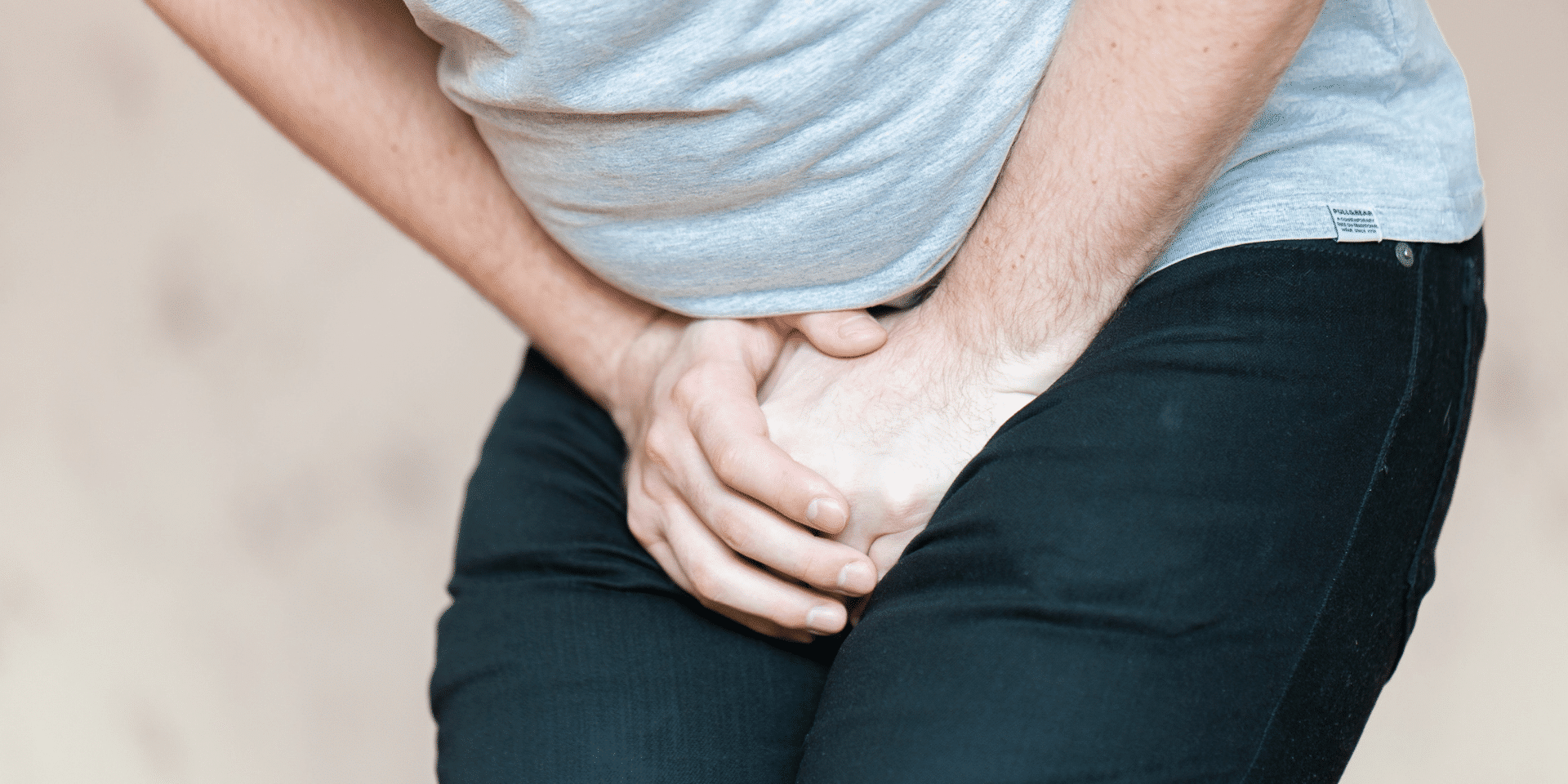Incontinence refers to any accidental loss of urine. There are several forms of incontinence; however, in this article, we answer the question “What is stress incontinence?”
Stress incontinence occurs when a certain action or movement causes a urinary leak. In this case, “stress” refers to physical stress. Actions such as coughing, sneezing, laughing, running, and heavy lifting squeeze the bladder, which can lead to unintentional urine loss if the pelvic muscles are not strong enough.
Stress incontinence is estimated to occur in 4 – 35 percent of the female population. It affects women more often than men.
Read on to find out more about stress incontinence symptoms, causes, risk factors, and prevention.
Also, be sure to view our full Urinary Incontinence & Bladder Control Health Guide for more articles and information.
Signs and Symptoms Of Stress Incontinence
Unlike other forms of incontinence, stress incontinence is associated with physical actions that require effort or exertion. The actions that cause urinary leakage may vary from one person to the next. In addition, a specific action might not always cause a leak.
People who have stress incontinence might experience a urine leak when they:
- Cough
- Sneeze
- Laugh
- Run
- Lift a heavy object
- Get up
- Step into/out of a car
- Exercise
- Have sex
The volume of the leak could be as little as a single drop or as much as a stream of urine. In some cases, having a full bladder might contribute to instances of stress incontinence.
What Causes Stress Incontinence?
Certain actions push on the bladder, leading to urine leaks. This is more likely when the muscles that support the bladder, known as the pelvic floor muscles, are weak.
In cases of stress incontinence, the muscles that control the opening and closing of the bladder could also be weak.
The urethra is a narrow tube that carries urine from the bladder to be expelled from the body. In the urethra, two sphincters act like valves, opening and closing to release urine.
Even as the bladder expands, filling with urine, the urethral sphincters stay closed, ensuring that no urine comes out until you make it to the bathroom and signal your body to urinate.
However, the urethral sphincters can weaken over time. When these muscles are weak, any action that places excess strain on the area—such as coughing, sneezing, or laughing—can cause the sphincter to relax, releasing a spurt of urine.
Am I At Risk?
Women are more likely to experience stress incontinence than men. In addition, stress incontinence is more common among older women.

Age can affect the muscles that support the bladder.
Certain factors can increase your risk of stress incontinence over time. Below are some of the factors.
Childbirth
Having a vaginal birth can damage the nerves and muscles that control the bladder.
Other factors related to childbirth, such as the use of forceps during delivery, also increases the likelihood of stress incontinence.
Sometimes, stress incontinence appears a short time after the delivery of a child. In other cases, years pass before stress incontinence appears.
Age
Stress incontinence can occur at any age, but it is more common in older individuals. With age, the body undergoes certain changes.
While stress incontinence isn’t a regular part of ageing, weakened muscles are. They may make some people more susceptible to stress incontinence.
Obesity
Excess weight can increase pressure on the organs in the abdominal and pelvic area. Over time, this might result in weakened muscles surrounding the bladder.
See our Weight Loss and Obesity Health Guide If you or a loved one are experiencing stress incontinence due to obesity.
Illnesses Causing Coughing and Sneezing
Certain illnesses, such as allergies and/or asthma, result in chronic coughing and sneezing. These illnesses can weaken the muscles that support the bladder over time.
Smoking
People who smoke cigarettes are more likely to experience respiratory symptoms such as coughing.
Over time, coughing can weaken the muscles that support the bladder, increasing the risk of stress incontinence.
High-Impact Activities
Over the long-term, certain high-impact activities, including running and jumping, might increase the likelihood of weakness in the muscles surrounding the bladder.
Prevention Tips
It is not always possible to prevent stress incontinence. However, you might be able to reduce your risk by doing the following:
- Maintaining a healthy weight.
- Eating a healthy diet, including enough fibre to keep your bowel movements regular (this can help reduce pressure on your bladder.)
- Avoiding foods and drinks known to irritate the bladder, such as coffee, tea, and alcohol.
- If you smoke, speak to a doctor about quitting.
- Kegel exercises, also known as pelvic floor exercises, can help you to retain strength in the muscles that support the bladder.
When to See a Doctor

If stress incontinence is affecting your day-to-day activities, make an appointment with your doctor. Treatments are available.
Still have questions? You can find the answers to 5 Frequently Asked Questions About Stress Incontinence.
The information provided should not be taken as professional medical advice. If you are having issues or have health-related concerns, you should see your personal physician.
This page is also available in:
![]() English
English


